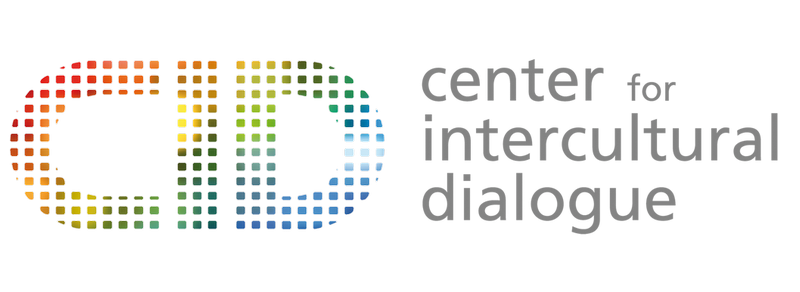Project dates: 01-09-2020 – 31-05-2023
Project Reference: 2020-2-PT02-KA205-007206
Coordinator: MOJU – ASSOCIACAO MOVIMENTO JUVENILEM OLHAO
Partners: CENTER FOR INTERCULTURAL DIALOGUE
ARMENIAN PROGRESSIVE YOUTH NGO
YOUTH FOR EXCHANGE AND UNDERSTANDING INTERNATIONAL AISBL
This initiative is a result of project partners’ extensive experience in working with young people from both primary and secondary schools. Namely, project leaders noticed that a very common problem young people face is school bullying. The implications of this phenomenon can be devastating and produce long-lasting trauma to the victims. Moreover, the school staff (teachers, counsellors and principals) are often incapable to: (i) identify cases of bullying; (ii) identify the victims and perpetrators; (iii) address the issue in the right manner.
Additionally, the civil society sector lacks the tools and incentives to provide adequate support for the victims and/or develop projects to tackle this issue. While, on the other hand, the local educational authorities do not have a clear strategy to respond to this phenomenon. Considering this, the partner organisations gathered to develop a project which will address the needs of young people and the relevant stakeholders. All these organisations have a long history of working with young people dealing with different social issues, among which is bullying. This cooperation will establish a cross-sectoral approach for confronting the problem of bullying in schools in order to offer long-lasting and sustainable solutions to the schools, youth organisations (as well as youth work providers), the educational authorities and the student themselves.
The aim of the project is creating a comprehensive approach for addressing the issue of bullying in the educational system in the partner countries based on European best practices which will be adapted to their local context.
Specific objectives (SO) of the project are the following:
– (SO-1) to identify key gaps within the institutional response towards bullying in each partner country in order to develop a tailored approach to address these issues;
– (SO-2) to share practices among the partner organisations for dealing with the phenomenon of bullying by creating an interactive online platform;
– (SO-3) to train 24 teachers and youth workers to develop competences for identifying cases of bullying and applying the adopted methodology in an efficient manner;
– (SO-4) to raise awareness of the school staff/administration and the youth about the detrimental effect of bullying on the mental health and well-being of young people, as well as the sensitivity of dealing with these problematics;
– (SO-5) to enhance the capacity of: (i) youth organisations/youth workers; (ii) young people within the schools (peer-to-peer approach) to provide additional support to the students affected by bullying.
As part of the project, a set of carefully designed activities will be implemented:
– analysis report on current practices and gaps in addressing bullying behaviour with future recommendations;
– training course on implementing Shared Concern Method on bullying;
– implementation phase focusing on confronting bullying in schools;
– follow-up meeting on the lessons learned and future steps;
– creating and launching an online platform against bullying.
The project will result in the following outputs:
– Report Analysis (conducted throughout the entire project duration) will target: (i) the current experiences with the issue of addressing bullying in different countries (including where the SCM has already been implemented); (ii) the existing gaps in confronting bullying; (iii) the possibility to include civil society organisations/youth workers/youth leaders for the purpose of developing a comprehensive approach; (iv) how to implement the SCM and anti-bullying policies in countries that have not dealt with this phenomenon (Armenia and North Macedonia). This analysis report is very innovative and, as far as the preliminary research of the project team goes, no document of this scope and scale has been produced thus far.
– Interactive Online Platform against Bullying will be developed because there is no existing tool/platform in such a format. It will establish a fora where many new anti-bullying projects and activities will be initiated in the future. It will serve as a resource toolkit for the SCM method materials tailored to the needs of the communities from the partner countries. Also, it will allow the participants to share their gathered experiences, insights and best practices from the implementation phase, as well as the conclusions made during the follow-up meeting. The output will have a significant transferability potential as the platform will be open not only to the project participants, but also their peers/colleagues (including the ones from other countries).
The project will have a significant impact on local, regional and European level. From a local perspective, it will address the issue of bullying by raising awareness about this problem among all relevant stakeholders. From a regional aspect, the project will tackle the issue of enhancing the capacities of organisations to tackle bullying in different regions in Europe and beyond. On a European level, the effect of the project will be twofold. First, it will create a link between organisations which work on the issues of bullying in the EU with their counterparts from the Western Balkans and the Caucasus. This will set the way for new forms of cooperation on both personal and institutional level. Second, it will rely on tools, approaches and good practices implemented in some EU countries and modify them to be context-specific to the partner countries.
